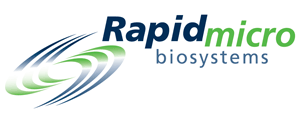Advantages of automated microbial colony counting
20 September 2023
Shares
- Like
- Digg
- Del
- Tumblr
- VKontakte
- Buffer
- Love This
- Odnoklassniki
- Meneame
- Blogger
- Amazon
- Yahoo Mail
- Gmail
- AOL
- Newsvine
- HackerNews
- Evernote
- MySpace
- Mail.ru
- Viadeo
- Line
- Comments
- Yummly
- SMS
- Viber
- Telegram
- Subscribe
- Skype
- Facebook Messenger
- Kakao
- LiveJournal
- Yammer
- Edgar
- Fintel
- Mix
- Instapaper
- Copy Link
Watch this webinar with independent microbiology expert Dr Tim Sandle to explore the different technologies, regulatory concerns and validation requirements for automated colony counting methods.
About this webinar
The majority of microbiological methods remain reliant upon growing microorganisms and enumerating cultures.
Over the past few years, a number of regulatory warning letters have questioned the accuracy of microbial plate counting and this has become a significant data integrity topic.
The limitations of manual counting can be overcome with automated methods. However, not all automated colony counting methods are the same; they differ with their technology, whether they incubate and enumerate, and with their relative accuracy.
This webinar explores the different technologies, regulatory concerns, and validation requirements. The focus is with improving the accuracy and control of microbiological data within the pharmaceutical laboratory.
Key takeaways
- What counts? Counting colonies and limits to human visual acuity
- Data integrity concerns with colony counting
- Regulatory trends
- Advantages of automated systems
- How automated systems work, technology selection and automated data capture and analysis
- Synergistic systems: Incubation, enumeration and counting
- Validation requirements and troubleshooting.
Our speakers


Dr Tim Sandle, Independent Microbiology Consultant
Dr Tim Sandle has over 25 years’ experience of microbiological research and biopharmaceutical processing. Tim is a member of several editorial boards and has authored 30 books on microbiology, healthcare and pharmaceutical sciences. Tim is Head of Microbiology for Bio Products Laboratory Limited (BPL) in the UK and is a visiting tutor at both the University of Manchester and UCL.


Dr. David Jones, Rapid Micro Biosystems: Director of Industry, Regulatory, and Government Affairs
Dr. David Jones has more than 20 years of experience in rapid microbial detection technology, laboratory instrumentation development, and laboratory management for European and U.S. markets, David has authored numerous papers on validation and regulatory topics. He also served on the TR33 committee establishing guidelines for validation of rapid microbiology in the pharmaceutical industry.
Prior to joining Rapid Micro Biosystems, David was manager of microbial test technologies at Wyeth Biopharmaceutical and held several positions at Chemunex in France, where he worked closely with the FDA and USP organizations for successful validation of rapid microbial detection systems used in water and in-process testing. He holds a degree in biochemistry from Brunel University in London and a PhD in steroid endocrinology from London University.
Work experience split between product development for the diagnostics industry specializing in tangential flow technology combining instrument to wet chemistry interaction with Unipath and Anagen then rapid microbiology with Chemunex in Paris, Wyeth Biopharma in Dublin and the last 16 years with Rapid Micro Biosystems in Boston where he is Director of Industry Affairs.





